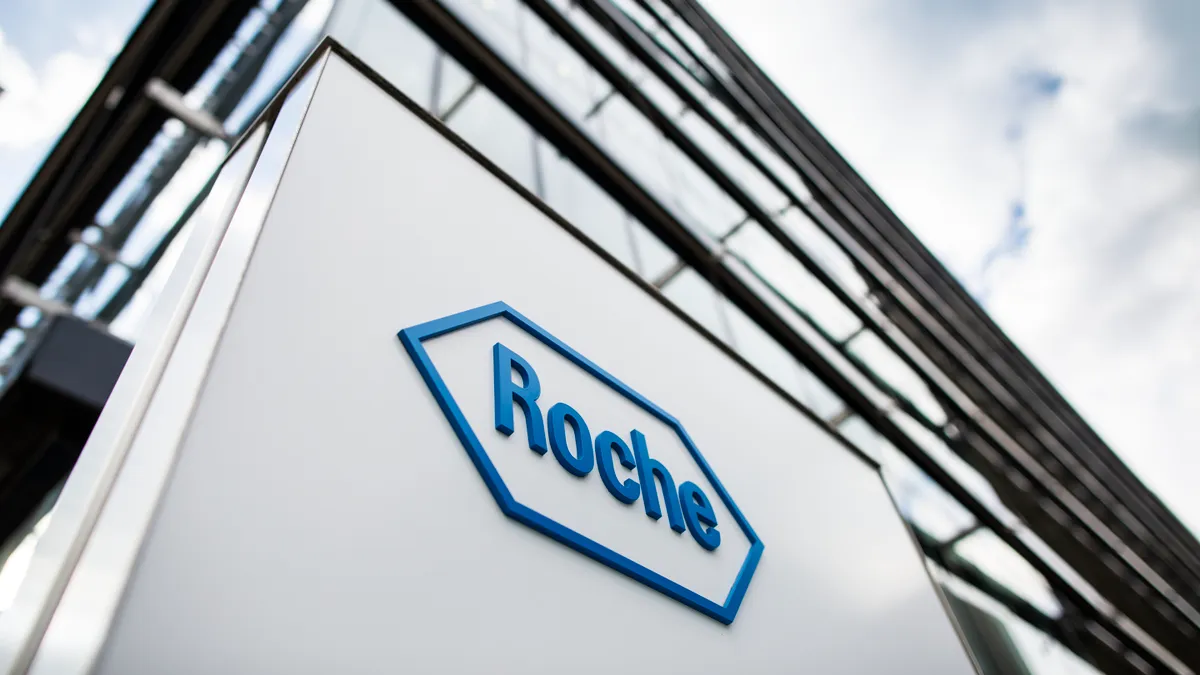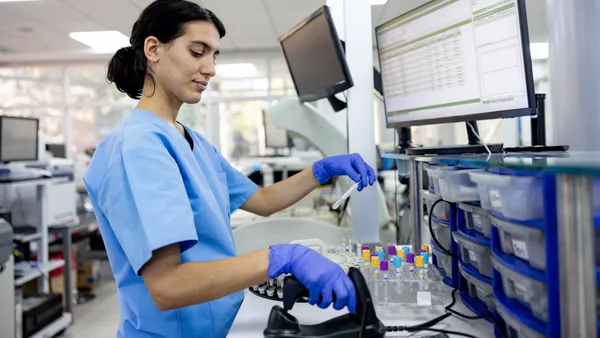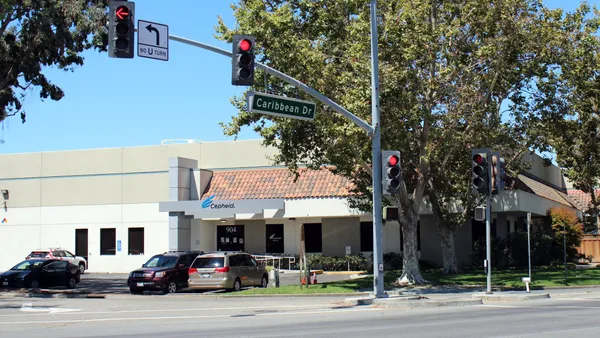Roche and Eli Lilly will join forces on the development of Roche’s Elecsys Amyloid Plasma Panel, a blood test that aims to facilitate the early diagnosis of Alzheimer’s disease, Roche said on Wednesday.
The test, if approved, could help determine whether patients should receive further evaluation that may confirm a diagnosis and could help them access new therapies as they become available, the company said.
Up to 75% of people living with symptoms of Alzheimer’s disease lack a diagnosis, while patients with a diagnosis typically received one 2.8 years after the onset of symptoms, the company said.
There is no single test that can determine if a person is living with Alzheimer’s or another dementia. The disease currently is diagnosed after other causes of dementia such as strokes, thyroid issues or Parkinson's disease are ruled out.
“This is not precision medicine or an ideal way to identify a terminal disease like Alzheimer's disease,” said Dr. Nate Chin, a geriatrician and the medical director of the Wisconsin Alzheimer’s Disease Research Center at the University of Wisconsin School of Medicine and Public Health.
“Blood based biomarkers, such as the proposed Elecsys Amyloid Plasma Panel, are changing this paradigm,” Chin said in an email.
The test has demonstrated clinical performance and is undergoing additional investigation to ensure clinical validation, Roche said.
“Simpler, less invasive, less expensive, more easily administered tests, like blood tests, that are sufficiently accurate are welcomed, and are gradually making their way from research into the clinic,” Rebecca Edelmayer, the Alzheimer’s Association’s senior director of scientific engagement, said in an email.
Roche announced in July that the U.S. Food and Drug Administration granted the test its breakthrough device designation. In December, Roche gained FDA 510(k) clearance for its Elecsys beta-Amyloid (1-42) CSF II and Elecsys Phospho-Tau (181P) CSF assays that identify Alzheimer's pathology in its early symptomatic stage.
"We are pleased to be joining Roche to support the development of yet another potential diagnostic tool,” Mark Mintun, Lilly group vice president for neuroscience R&D, said in a statement. "We look forward to the robust data and continued collaboration across the field that will be critical to accelerate the ecosystem to aid in a timely and accurate diagnosis of Alzheimer’s."
Edelmayer said blood-based markers have shown promise to revolutionize the diagnostic and prognostic work-up of Alzheimer's disease. The association last year published appropriate use criteria for blood-based markers.
“That said, we want to be clear that this test is not ready for prime time -- it is for research use only at this point, and is not meant to be used in the clinic for diagnosis,” Edelmayer wrote in response to a query from MedTech Dive.
To diagnose Alzheimer’s, physicians may use medical history, mental status tests, physical and neurological exams, diagnostic tests and brain imaging. PET and MRI brain imaging for Alzheimer’s, and tests of cerebrospinal fluid, while accurate, are invasive, expensive, may not be covered by insurance, and may not be available geographically close to all who need them, Edelmayer said.
The newly approved anti-amyloid drugs for Alzheimer’s, and additional treatments in this class that will follow, have only been tested in people with early Alzheimer’s who have abnormal beta-amyloid build-up in the brain, Edelmayer added.
“Confirming amyloid plaques in the brain is essential for appropriate use of these therapies. New blood tests, once validated in broad and diverse populations, may provide valuable information on the likelihood that an individual has plaque buildup in the brain and streamline the diagnostic process,” she said.
The collaboration comes after Lilly earlier this month announced it would halt testing of solanezumab, once its top Alzheimer’s drug candidate, after 20 years of research because the treatment showed no benefit in a clinical trial.
Updates with comment from Dr. Nate Chin.










